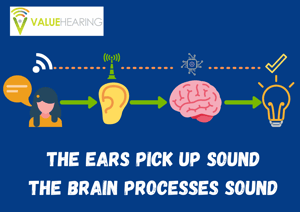Time to read: 8 minutes
You're probably very familiar with the phrase 'use it or lose it'.
We place great importance of improving our physical condition, especially as we get older, but did you know we should also be taking the time to improve the brain's condition too?
Given the new trendy name of 'brain training', this exercise can take the form of a wide range of activities
Physical activity
 Improved cardiovascular fitness positively impacts all of the body by improving blood circulation and oxygen uptake.
Improved cardiovascular fitness positively impacts all of the body by improving blood circulation and oxygen uptake.
According to Harvard Health, exercise can also help memory and thinking in two ways.
The first is reducing insulin resistance and inflammation while stimulating the release of chemicals which support the health of brain cells (including the growth of new cells and blood vessels).
Secondly, exercise promotes a good night's sleep and helps reduce stress and anxiety.
Researchers at the University of Sydney have discovered that six months of strength training (lifting weights) can help protect brain areas especially vulnerable to Alzheimer’s disease up to one year later.
Weight training also has the additional benefit of maintaining balance and reducing the risk of osteoporosis and the stiffness and pain associated with osteoarthritis.
Enjoying favourite hands-on activities such as knitting, painting, woodworking can also keep your brain active and improve dexterity as well as reducing stress.
Taking part in these activities with friends also stimulates fun conversations and reduces social isolation.
Mental activity
 Improving mental fitness is also vital as we get older.
Improving mental fitness is also vital as we get older.
Researchers at Stanford University found that memory loss can be improved by 30 to 50 per cent simply by doing mental exercises.
Mentally stimulating activities such as strategy board games and computer games, crossword puzzles, chess, trivia games keep the brain engaged.
There is a large number of puzzle-solving and memory enhancing video games that may help with improving memory. This article has some useful tips.
So, what does have any of this have to do with hearing?
Great question!
Hearing and your brain
Sound going into your ears at the right volume and the right frequencies is only one half of the hearing equation.
The second half of the equation is your brain’s ability to make sense of the sound your ears are sending through.
If your hearing loss is untreated, or not optimised to its best, the parts of the brain which processes speech start to shut down.
This means your ears might be delivering the sound just fine, but your brain has reduced ability to make sense of what the sound means.
The effects on your on-going health and wellbeing are enormous. Untreated hearing loss has been associated with depression, social isolation and dementia.
We have an article on Why You Should Get Your Hearing Tested If You Want To Avoid Premature Dementia.
But there is good news. You can help train your brain to hear better.
 First of all, engage in regular exercise.
First of all, engage in regular exercise.
We’ve just outlined how exercise is good for the brain, and we have an article right here that looks at how exercise can improve your hearing by improving blood flow and reducing inflammation.
There are any number of ‘brain training’ programs available on the market but some of the most effective involves no more extra cost than simply wearing your prescribed hearing aids.
We encourage new hearing aid users to take the time to actively listen to the sounds around them.
One great activity is to go to your local park, sit down on the park bench and close your eyes.
Concentrate on one type of sound - the sound of a bird in the trees, a dog barking, the rustling of the leaves, the sound of children playing on the swings, the tick-tick-tick of the wheels of a bicycle as it goes by. That will help you to isolate sounds and correctly identify them.
It will also help you learn to filter out general background noises that you can now hear, but don’t need to pay close attention to.
Practice having conversations both one-on-one and in small groups. Having new hearing aids is a great opportunity to more deeply connect with friends and loved ones again through conversation.
Turn down the TV volume to what other people in your household consider to be ‘normal’ levels and practice listening. Television news and talk shows are excellent to start with, as the volume and the cadence of speech tend to be consistent during the length of the program. If you need to, consider using closed captioning and subtitles until your brain gets used to processing and interpreting the signals it’s receiving.
Another technique is to read aloud, to gauge a sense of a suitable speaking volume or to read along to an audiobook.
The benefits of good health and good hearing cannot be overstated and there is plenty you can do to give yourself the best possible hearing.
The most important thing to remember is that maximised hearing is a partnership between you and your audiologist, along with your ears and your brain. After all, it is the ears that hear but the brain listens.